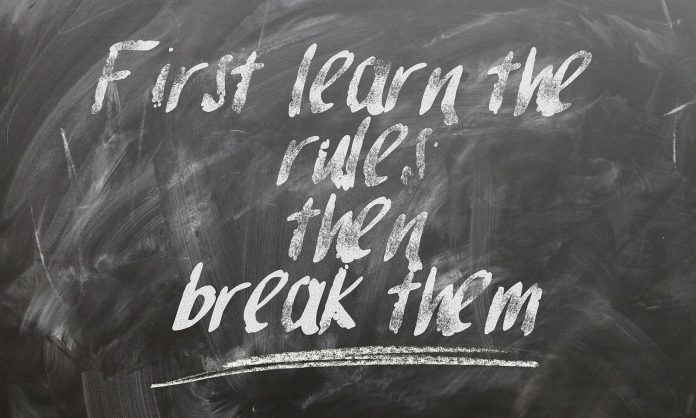
In a post on Lit Hub, Adam White explains why he makes rules for his writing students and then breaks them in his own writing. When he started teaching, White focused on creativity first, craft second. Unfortunately, his students kept making the same mistakes, year after year.
Students started their stories with an alarm clock and ended by announcing what had occurred was a dream. After a while, White started making rules. “So from now on, you tell your class, no alarm clocks, no dream sequences,” he says. “You make another rule: when in doubt, show instead of tell.” After ten years, he had a pretty good list, but then he noticed something.
“The more rules I made for my students, the more I saw where I was violating those rules in my own writing, making the same mistakes my students were making,” White says. “It’s hard to be objective when you’re reading your own work, and it’s easy to give yourself the benefit of the doubt, but nothing’s worse than feeling like a hypocrite, so whenever I felt like a hypocrite, I’d force myself to see what needed fixing.”
Calling himself out on his own rules strengthened White’s writing and helped him avoid shortcuts, whether they involved dialect, POV, and write what you know. Still, his current novel breaks some of those rules. “The novel has some weird POV shifts,” White says. “It starts with an in media res prologue. And I wrote about drug-running lobstermen when I am neither a lobsterman nor a drug-runner.”
But White feels like he earned the right. “I may be a debut novelist, but I am no longer a young writer,” he says. “In order to tell the story the right way, I had to make the rules, learn the rules, teach the rules, and then know where to break the rules.”











